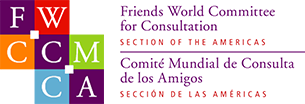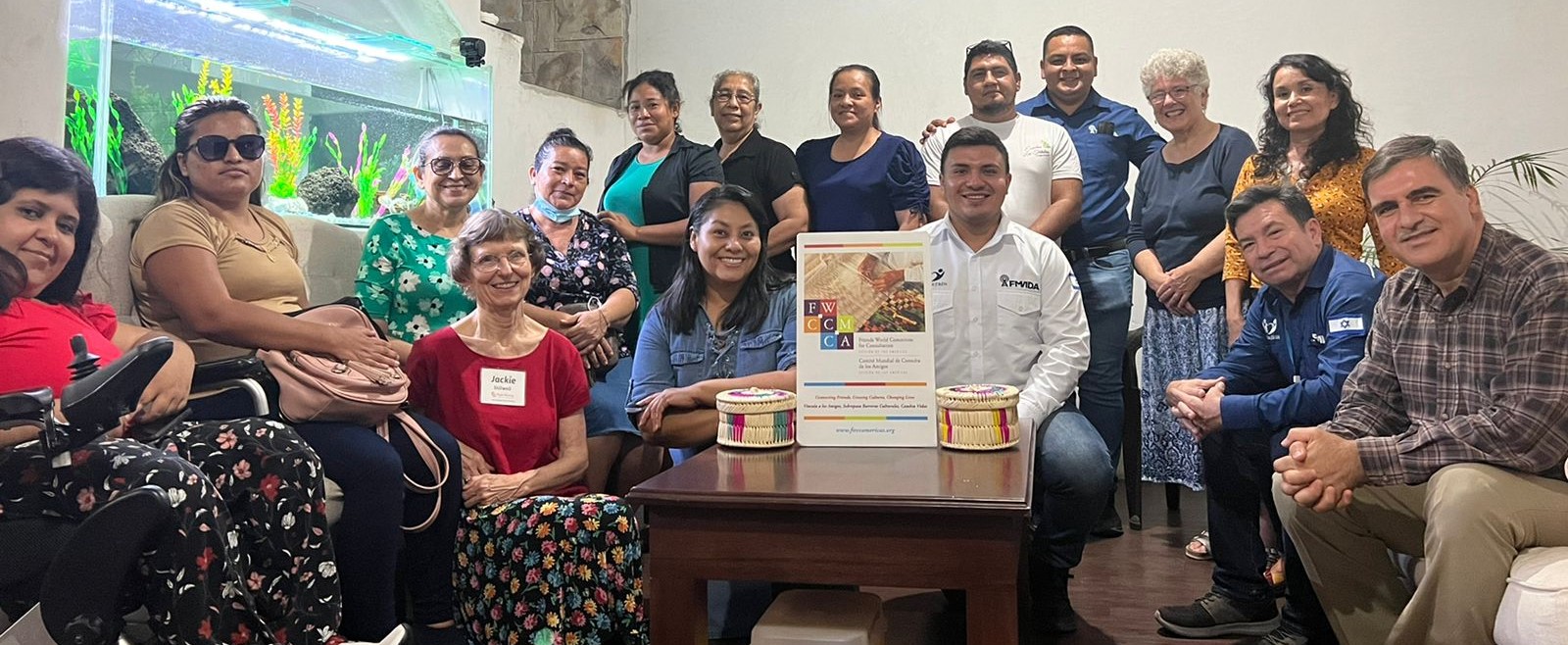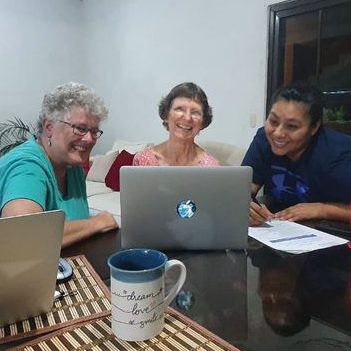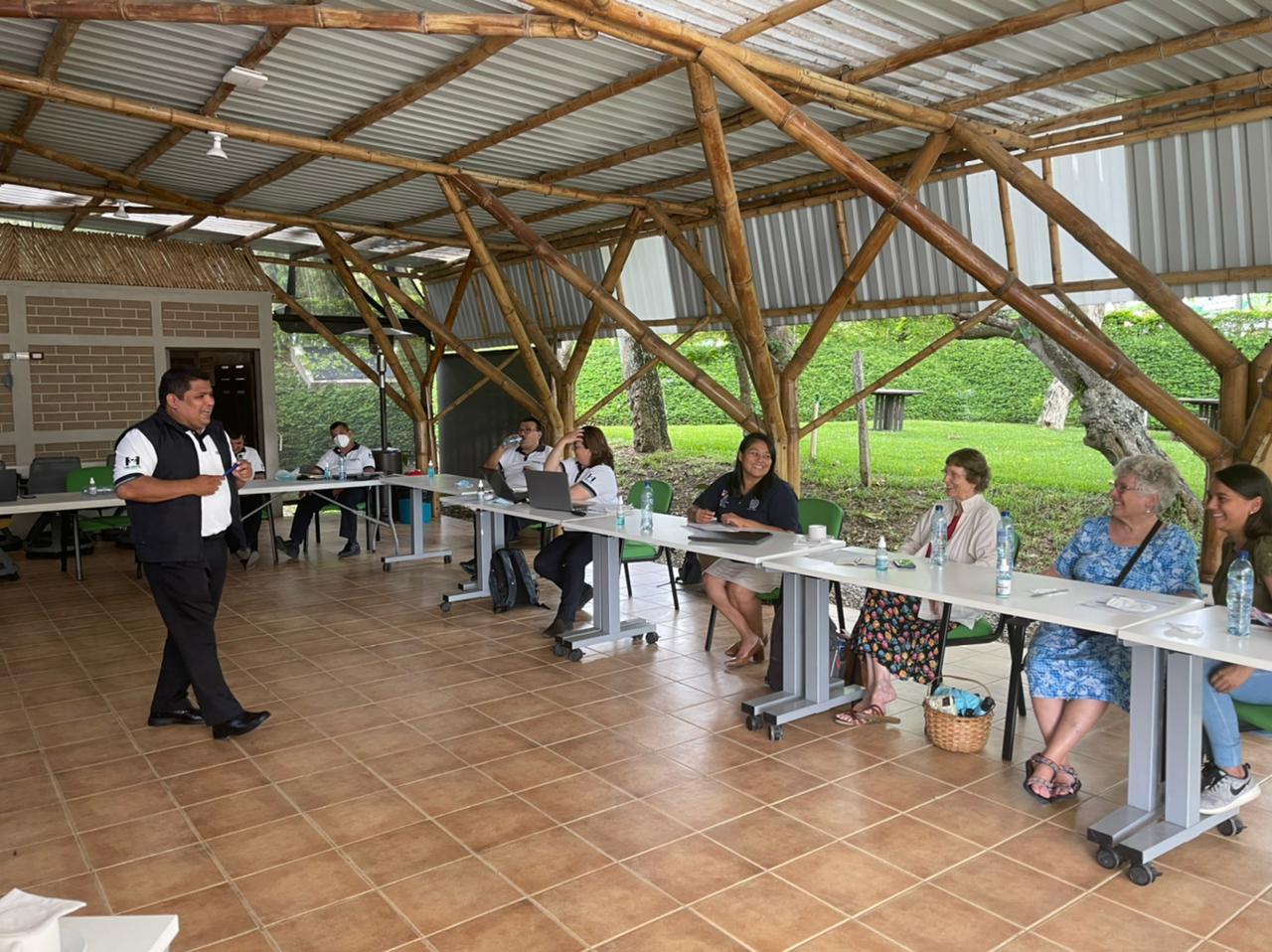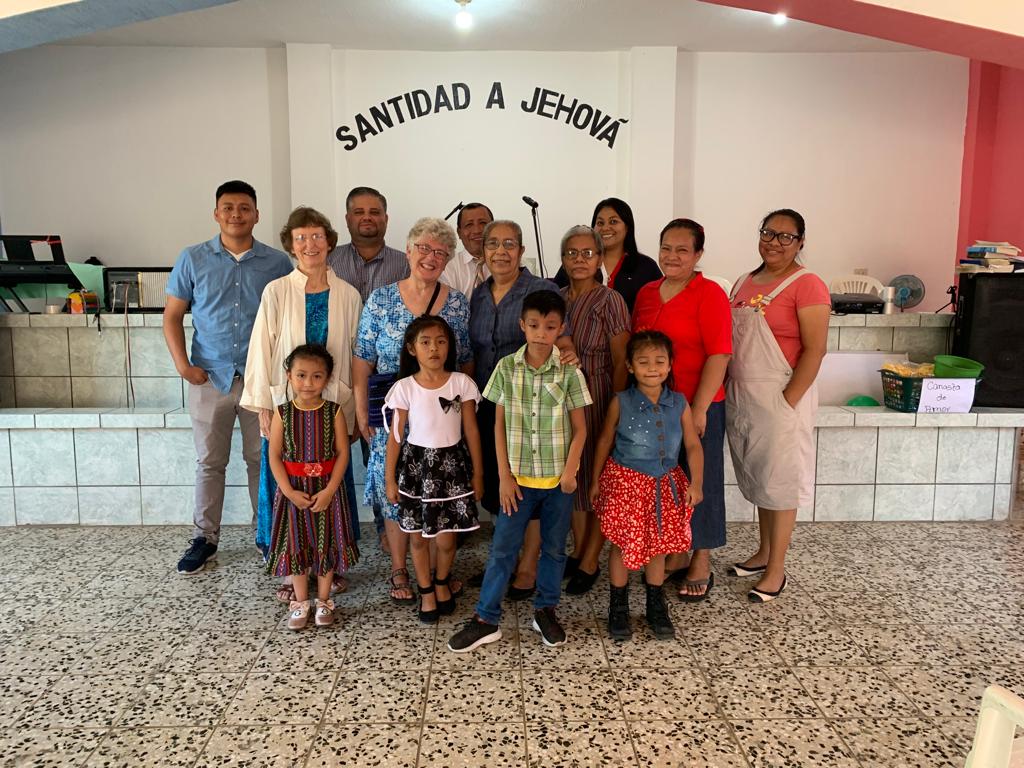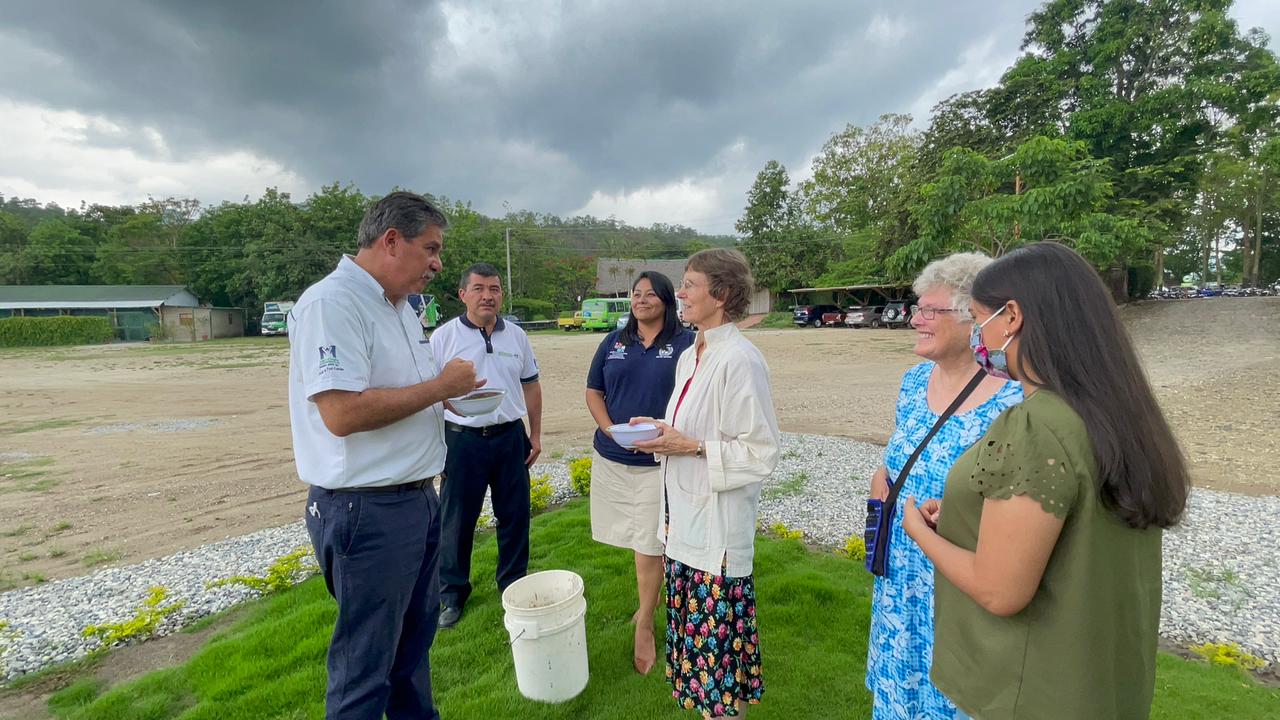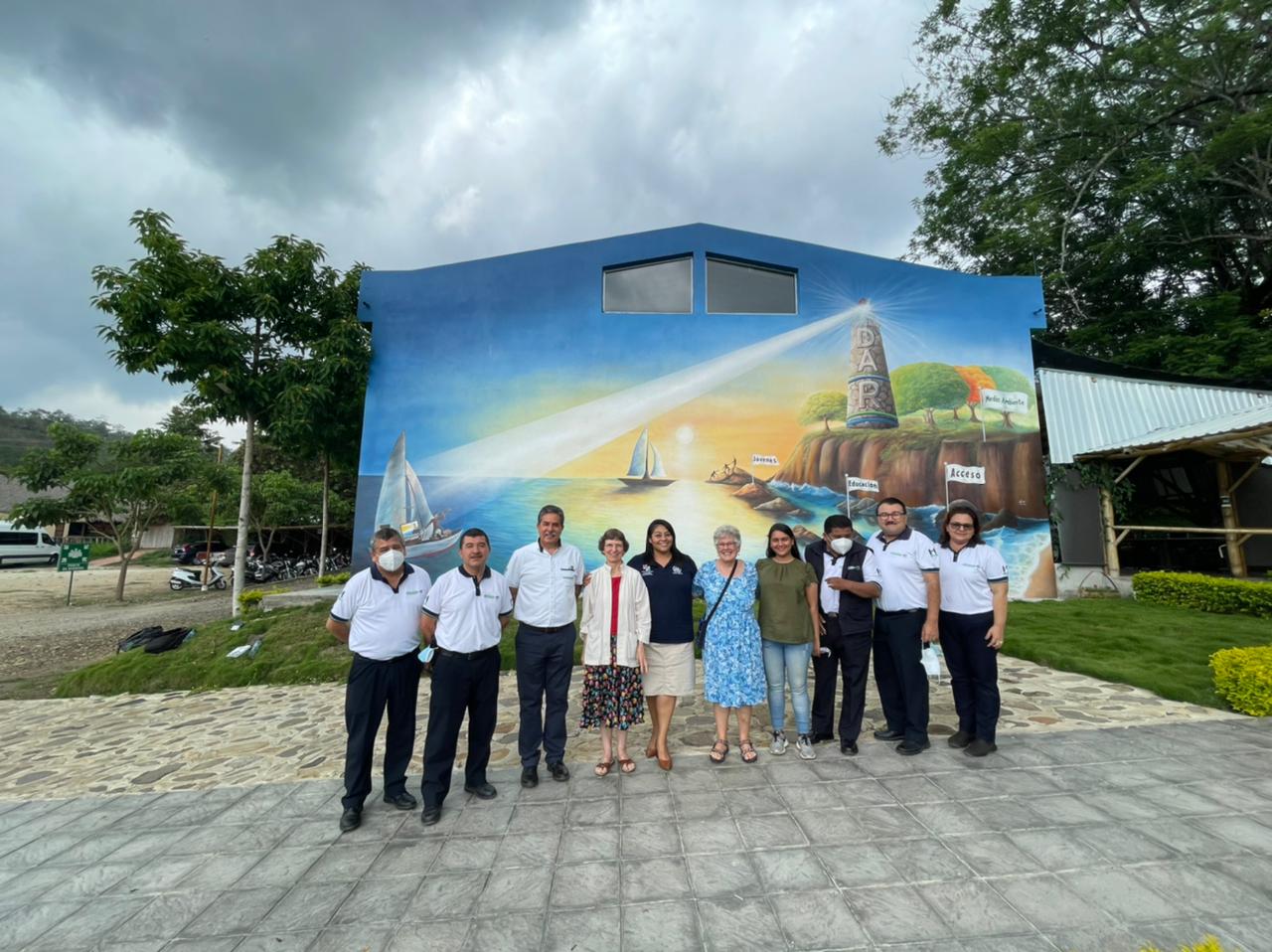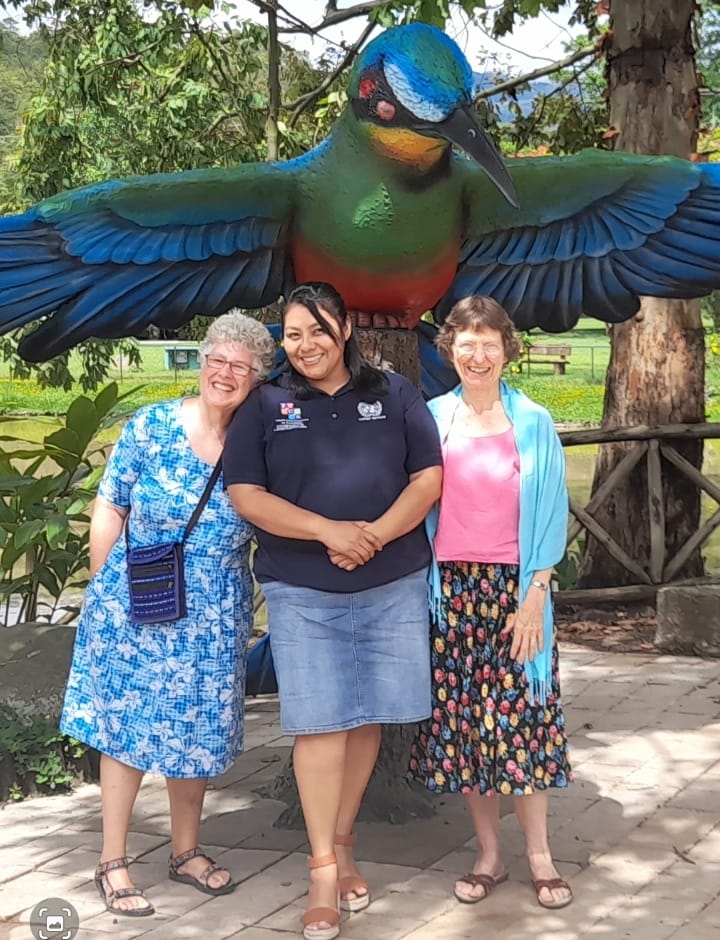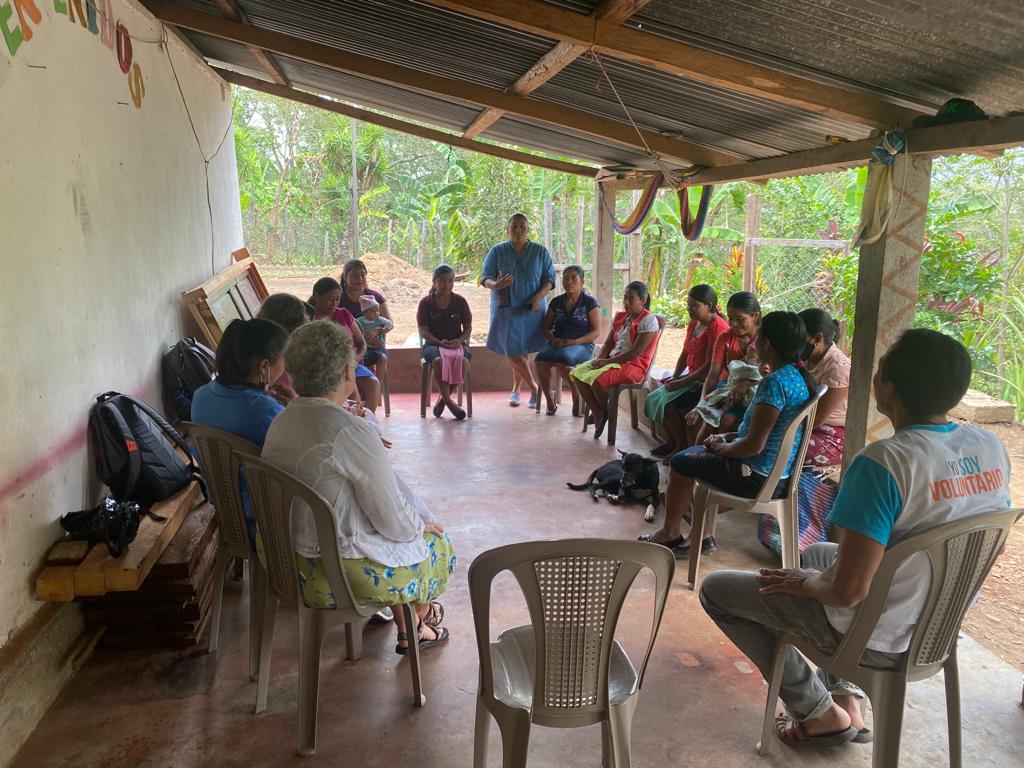by Karen Gregorio de Calderon, Coordinator for COAL-FWCC
Right Sharing of World Resources (RSWR), a Quaker nonprofit, came to Guatemala from May 23-29, 2022 to investigate the potential for doing projects in Latin America and using Guatemala as a pilot project. For FWCC-COAL, it was beneficial for us to be a part of the working process for this visit because one of our objectives is to work on joint projects with a community improvement focus with Quaker organizations that wish to do this work in Latin American countries.
RSWR was for many years a program of the Friends World Committee for Consultation, but has now been an independent organization for over 20 years. RSWR works with marginalized women, offering them seed capital so that they can start their own businesses and become productive women, thus changing the lives of themselves and their families. This project would bring great benefits to the people of Guatemala.
How would work be done in Guatemala?
RSWR would work in conjunction with the COOSAJO Savings and Credit Cooperative located in Esquipulas, Chiquimula in eastern Guatemala. With this institution, the pilot project could be executed in the eastern region of the country. The staff of the Cooperative had the opportunity to learn who Quakers are worldwide and the work that Quakers do.
It is important to emphasize that the cooperative already carries out community work in the region with women, the pilot project would be a further development of their work. Two field technicians would be hired, who would form and train the women’s groups and accompany them in their training process, which is similar to RSWR’s work in Sierra Leone and India.
What activities were carried out during the visit?
- Meetings with the management of the Guatemalan institution COOSAJO, to learn more about its work, its achievements and its values.
- Meeting with the middle managers of the institution to share information about the projects and both organizations.
- Meeting with the COOSAJO Board of Directors. We introduced FWCC and RSWR.
- Meetings with leading employees of the institution: To learn about their testimony, their achievements and how the institution has been part of the change in their lives with the value of inclusion of women.
- Field visits to the villages, where we were able to share with women who need to be taken into account and be benefited.
- Meeting with young women leaders: to learn about the work COOSAJO has done with them, providing study scholarships, scholarships to study English, etc.
What did COAL-FWCC contribute during the RSWR visit to Guatemala?
- Lodging
- Food for two people.
- General orientation on the region to be worked in (Statistical data and cultural information)
- General information on Quakers in Guatemala, how they are organized and where they are most concentrated in the country and how Quakers work in this area.
- Review of the information in PowerPoint and translation of the same, to present it in Spanish to the organization. Focus on the objectives with correct Spanish vocabulary.
- Intervention in meetings, when it was necessary to make the idea of RSWR clear.
- Support in decision-making processes when help was required.
- Clarification of ideas
- Accompany RSWR in each planned meeting, to support them in these processes (with the language, with small translations, synthesize the information, etc.)
- Lead and facilitate scheduled meetings, to obtain the necessary information from each group.
- Work meetings (RSWR-FWCC-COAL) at the end of the day to draw conclusions and learn from each scheduled activity.
- Coordinate and manage meetings with Quakers in the region
- Coordinate visits to the churches in the region
- Coordinate a visit to the largest Friends campus in the Region. National Friends Church.
- And the most important thing is that due to the support that can be provided by COAL and the Quakers in the region, Guatemala is a potential country for RSWR to start a pilot project in Latin America and that could later be extended to other countries.
What benefit do local Quakers have with this project?
- Job opportunity: One of the benefits is that they will be considered in the process of hiring field facilitators. In other words, when the call to hire people is launched, it will also be sent to the Quakers in the region so that they can apply.
- Opportunity for the women of our churches: The women of our Friends Churches will also have the opportunity to be taken into account, to provide them with seed capital, according to the RSWR processes.
What did COAL achieve during the RSWR visit?
- First, connecting the affiliated and non-affiliated yearly meetings.
During RSWR’s visit, representatives and leaders from our affiliated and unaffiliated Yearly Meetings were invited to a meeting. At the meeting, the work of FWCC, the work of COAL, the future plans and an invitation to work together were announced. In addition, the RSWR project was presented to them, as a fulfillment of the mission and objectives of FWCC, making our slogan a reality: Connecting friends, crossing cultures and changing lives. This meeting was fruitful; we were together in harmony sharing the love of God that unites us.
Among attendees were:
- Ambassadors Friends Monthly Meeting, represented by Susy Ramirez
- Holiness Friends Yearly Meeting: With the participation of two representatives to FWCC, Teresa de Hernandez and Abner Garcia. In addition, 4 women leaders from the different churches of the yearly meeting participated.
- National Friends Church: It was represented by its president Rigoberto Vargas and by 3 more members of one of the churches. That they are also part of the Shalom Jiréh Organization, who distributed the funds that FWCC collected, for the victims of Hurricanes Eta and Iota
- We also achieved the participation of two disabled women entrepreneurs, who have not been supported by other organizations.
- Total, we achieved attendance of 16 people.
All attendees were pleased and grateful for having been invited to the meeting and expressed their desire to be taken into account in the process of this project or others that we can work together as a region and as a church through FWCC.
What potential do we have after the RSWR visit to develop other projects with the Guatemalan institution COOSAJO for the benefit of local Quakers and society in general?
- The institution has community development programs, with established processes.
- Provide entrepreneurship training
- They carry out projects to take care of the environment
- They design training processes according to the needs of the projects to be worked on.
- Provide scholarships to people with limited resources.
- They have an agreement with the US embassy for young people who want to study English in a free program. This with the purpose of curbing migration, since Chiquimula is a department bordering Honduras and El Salvador vulnerable to the formation of migrant caravans. There are many bilingual youth who benefited from these programs.
- Recruit new interpreter volunteers who already have command of the English language and who serve as interpreters among the international cooperatives.
Conclusions:
- FWCC has the opportunity to start a closer relationship with this institution and manage benefits that are possible for our Quaker community. In this way, achieve that the yearly meetings have something in common and gradually break down the communication barrier between them.
- An important point to emphasize is that the yearly meetings are interested in working together on projects for the benefit of the community.
[Translation by Diane Zappas and Robin Mohr]
